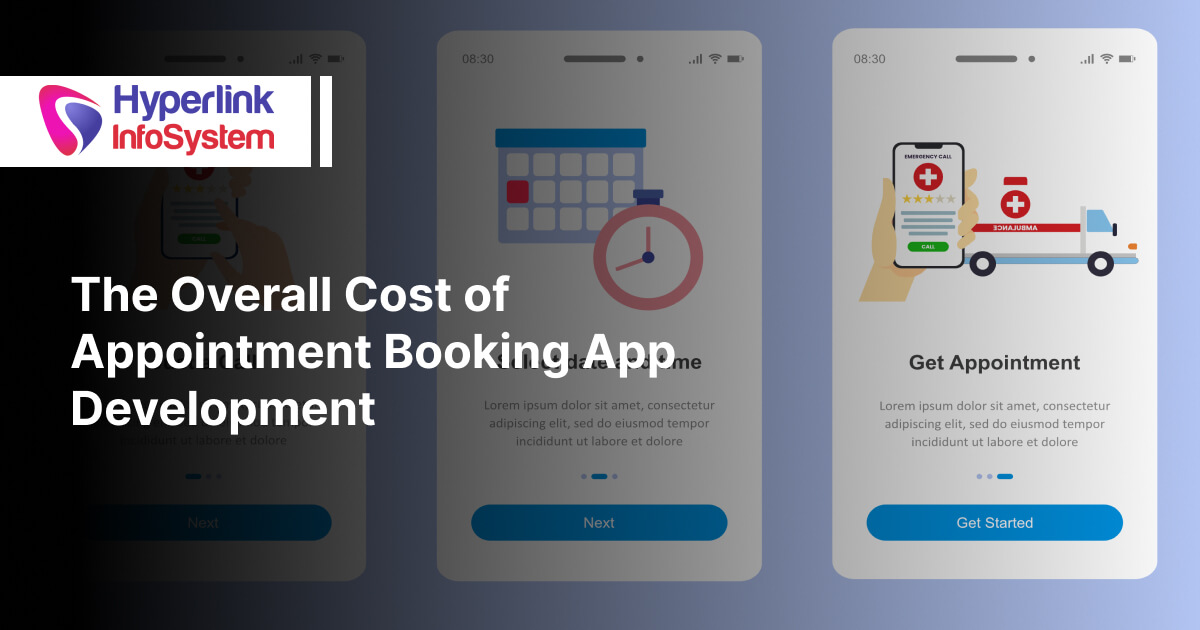Mobile app development is a rapidly evolving field, where developers are constantly on the lookout for cutting-edge tools and technologies to enhance and optimize their apps. The quest to improve app quality and user experience has given rise to a dynamic and ever-changing landscape of development tools and platforms. As a result, developers are constantly exploring new ideas and approaches, and experimenting with innovative technologies to create better, faster, and more user-friendly mobile apps.
The choice of an appropriate framework is crucial for the accomplishment of your iOS app development project. Two of the most popular options available today are Flutter and Swift. In this blog, we'll compare Flutter and Swift, highlighting the advantages of each framework and their respective development processes.
We'll also discuss how to choose between the two, based on factors like project requirements, development team skills, and the availability of development resources.
If you're looking to hire a Flutter app development company or a Swift development company, we'll provide some tips on how to choose the right team for your project. Whether you decide to hire Flutter developers or Swift developers, this blog will provide you with the insights you need to make an informed decision.
What is Flutter?
Flutter is an open-source UI toolkit created by Google that allows developers to build natively compiled applications for mobile, web, and desktop platforms from a single codebase. It uses the Dart programming language and follows the reactive programming model, making it easy to build and maintain high-performance, responsive, and visually appealing applications.
Flutter is designed to make it easy for developers to create beautiful, expressive user interfaces, with a wide range of customizable widgets that can be easily composed to create complex layouts. It also comes with a powerful set of tools and libraries for building animations, graphics, and media, making it easy to create immersive and engaging user experiences.
Flutter's hot reload functionality is a significant advantage as it enables developers to view the modifications they make to the code in real-time, without having to restart the application. This speeds up the development process, allowing developers to iterate quickly and fix bugs faster.
Flutter also has a rich set of plugins and integrations, making it easy to integrate with third-party services and platforms. It has plugins for popular services like Firebase, Google Maps, and Stripe, as well as integrations with popular development tools like Visual Studio Code and Android Studio.
If you want to create a mobile app that works seamlessly across both iOS and Android platforms, you should consider Flutter app development.
A top-notch flutter app development company can provide end-to-end solutions for your mobile app project, from ideation and design to development and deployment. Hire flutter developers who can save you time and money by allowing you to scale your development team quickly, without having to invest in hiring and training new employees.
What is Swift?
Swift is a general-purpose programming language that was developed by Apple Inc. in 2014 as a replacement for Objective-C. It is designed to work with Apple's Cocoa and Cocoa Touch frameworks and provide a modern syntax that is easy to read and write. Swift is an open-source language that has quickly gained popularity due to its simplicity, speed, and safety.
Swift is a compiled language, meaning that the code is compiled into machine-readable code before it is executed. This allows the language to be optimized for performance and speed, making it an ideal language for developing applications on Apple's platforms.
One of the key features of Swift is its safety. Swift includes many safety features that help prevent common programming errors such as null pointers, uninitialized variables, and buffer overflows. This makes it easier for developers to write safer and more reliable code.
Swift also includes a number of other features that make it a powerful and flexible language. It includes support for functional programming, object-oriented programming, and protocol-oriented programming. It also includes a powerful standard library, making it easier for developers to write code without having to reinvent the wheel. Swift developers are in high demand due to the popularity of Apple devices, and hiring skilled swift developers can help ensure the success of your iOS app project.
Swift development is the way to go if you want to build native iOS apps that perform exceptionally well on Apple devices. Swift development offers many advantages for iOS app development, including improved performance, stability, and security. A swift development company can provide services such as app development, UI/UX design, testing, and maintenance to ensure the success of your iOS app project.
Also Read, Why Use Flutter For Mobile App Development?
Advantages of Flutter in iOS App Development

Flutter app development is becoming increasingly popular among businesses because of its ability to deliver fast and cost-effective mobile app solutions. One of the advantages of Flutter app development is the ability to use a single codebase to build apps for both iOS and Android, reducing development costs and time to market.
There are several advantages of Flutter in iOS app development. Let us see we will discuss the advantages of iOS:
1) Cross-Platform Development
Flutter is an open-source mobile application development framework that allows developers to build native iOS apps from a single codebase. This means that developers can write code once and use it for multiple platforms, including iOS, Android, and even the web. Flutter uses its rendering engine and widgets, which provide a fast and customizable UI experience for users across different platforms.
2) Hot Reload
One of the most significant advantages of Flutter is its Hot Reload feature, which allows developers to make changes to the code and see the results in real time. This feature helps to reduce development time significantly, as it eliminates the need for developers to rebuild the entire app every time they make changes to the code. Hot Reload also makes it easier for developers to iterate quickly and test out new ideas without wasting time on compiling the code.
3) Faster Development
Flutter allows developers to build iOS apps much faster than other frameworks. This is because Flutter uses a single codebase for different platforms, which significantly reduces the development time and effort required. Additionally, Flutter’s extensive library of pre-built widgets and components further accelerates the development process by eliminating the need to create UI elements from scratch.
4) Easy to Learn
Flutter is easy to learn and understand, especially for developers who have prior experience in programming languages like Java or Swift. Flutter’s syntax is simple, which makes it easy for developers to get started with the framework quickly. Flutter also provides extensive documentation and a large community of developers, which can be useful resources for developers looking to learn more about the framework.
5) Customizable Widgets
Flutter provides a wide range of customizable widgets that can be used to build UI elements for iOS apps. These widgets can be customized according to the app’s requirements, which provides developers with greater flexibility and control over the app’s design. Additionally, Flutter’s widgets are highly performant, which ensures that the app’s UI remains smooth and responsive even on older devices.
6) Better Performance
Flutter’s rendering engine and widgets are designed to provide better performance compared to other frameworks. This is because Flutter uses a Skia graphics engine, which provides better rendering performance than other frameworks that rely on native components. Additionally, Flutter’s reactive programming model ensures that the app’s UI remains responsive and fast, even when the app is performing complex operations in the background.
7) Access to Native Features
Flutter allows developers to access native features like cameras, location, and sensors using its own set of plugins. This means that developers can build iOS apps that have access to all the native features of the device without having to write any platform-specific code. Additionally, Flutter’s plugins are easy to use and can be integrated seamlessly into the app’s codebase.
8) Better Testing and Debugging
Flutter provides a comprehensive set of tools for testing and debugging iOS apps. Flutter’s testing framework allows developers to write unit, widget, and integration tests, which can be used to test the app’s functionality and ensure that it works as expected. Additionally, Flutter’s debugging tools make it easier for developers to identify and fix issues in the app’s code quickly.
Flutter is an excellent choice for iOS app development, especially for developers who are looking to build cross-platform apps. Flutter’s ability to use a single codebase for different platforms, hot reload feature, and extensive library of widgets and components make it easier and faster to develop iOS apps.
Additionally, Flutter’s customizable widgets, better performance, access to native features, and comprehensive testing and debugging tools make it an attractive option for developers looking to build high-quality iOS apps. When choosing a Flutter app development company, it's important to look for a team that has expertise in both Flutter and mobile app design to create an engaging and user-friendly app. When you hire Flutter developers, you can benefit from their expertise in using the Flutter framework to build visually stunning, highly responsive, and intuitive mobile apps.
Also Read, How To Hire IOS App Developers In Canada?
Why is Swift Better for iOS App Development?

Here are many reasons why Swift is better for iOS app development:
Speed and Performance
One of the main reasons why Swift is better for iOS app development is its speed and performance. Swift is a compiled language, which means that it is translated directly into machine code that can be executed by the processor. This makes Swift faster than interpreted languages like JavaScript, which need to be interpreted by the browser or runtime environment before they can be executed.
Swift is also optimized for performance, with features like type inference and lightweight syntax that make it easier for developers to write code that runs efficiently. These features allow developers to build apps that are fast and responsive, even on older devices.
Strong Typing and Error Handling
Swift is a strongly typed language, which means that all variables and constants must have a specific type that is defined at compile time. This makes it easier for developers to write code that is more reliable and less prone to errors.
Swift also has robust error-handling capabilities, with features like try-catch blocks that allow developers to handle errors in a more granular and efficient way. This can help to make iOS apps more robust and less likely to crash or experience unexpected behavior.
Compatibility with Objective-C
Swift was designed to work seamlessly with Objective-C, which is the primary programming language used for iOS app development before the release of Swift. This means that developers can easily mix and match Swift and Objective-C code in their apps, which can help to simplify the transition to Swift.
This compatibility also means that developers can leverage the vast ecosystem of Objective-C libraries and frameworks when building iOS apps with Swift. This can help to speed up development and reduce the amount of custom code that needs to be written.
Open-Source and Community-Driven
Swift is an open-source programming language, which means that it is freely available to developers to use and contribute to. This has helped to create a vibrant community of developers who are constantly working to improve the language and build new libraries and frameworks.
This community has also helped to create a rich ecosystem of third-party tools and resources for Swift development, including IDEs, code editors, and documentation. This can help to make development with Swift more efficient and enjoyable for developers of all skill levels.
Future-Proofing
Swift is a modern programming language that is constantly evolving and improving. Apple has committed to supporting and developing Swift for the long term, which means that developers can be confident that their skills and code will remain relevant and useful for years to come.
This commitment to Swift is also reflected in Apple's development of new technologies and frameworks, such as SwiftUI and Combine, which are designed specifically for use with Swift. These new technologies can help to make iOS app development more efficient and enjoyable, while also providing developers with more powerful tools for building great apps.
Swift is a modern, fast, and safe programming language that is the preferred choice of developers for building iOS apps. It's strong typing, error handling, compatibility with Objective-C, open-source community, and future-proofing capabilities make it a great choice for developers who want to build high-quality, performant iOS apps. Swift developers can leverage Apple's frameworks such as UIKit, CoreData, and SwiftUI to build robust and high-performance iOS apps that provide a seamless user experience.
If you are looking to build an iOS app, Swift is worth considering as your programming language of choice. Swift development is the preferred language for iOS app development due to its simplicity, safety, and powerful features, such as optional and closures. If you need a high-quality and reliable iOS app, partnering with a trusted Swift development company can help ensure your project's success. Experienced swift developers can help you create cutting-edge iOS apps that leverage the latest technologies and trends in the industry.
How to Compare Flutter vs Swift?

Flutter and Swift are both popular frameworks for iOS app development. Flutter is a mobile app SDK developed by Google that allows developers to create high-performance, visually appealing native apps for iOS and Android platforms with a single codebase. On the other hand, Swift is a programming language developed by Apple that allows developers to build native iOS apps. Both frameworks have their own strengths and weaknesses, so choosing the right framework depends on the specific needs of your project.
Key Factors To Consider When Comparing Flutter And Swift:
Language and Syntax
Swift is a programming language specifically designed for iOS app development. It is easy to read and write, and it has a syntax that is similar to popular programming languages like Java and Python. On the other hand, Flutter uses Dart, a modern programming language that is similar to JavaScript. Dart is easy to learn and has a clean syntax, making it an ideal choice for beginners. However, developers who are familiar with other programming languages may find it more challenging to learn.
UI Development
Flutter comes with its own set of widgets and tools that allow developers to build custom UI components and animations quickly and easily. This makes it an ideal choice for developers who want to create visually appealing apps with a unique look and feel. Swift, on the other hand, relies on Apple's UIKit framework for UI development. While UIKit provides a wide range of pre-built UI components and layouts, it can be more challenging to customize them to fit your specific needs.
Development Time and Effort
Flutter allows developers to create cross-platform apps with a single codebase, which can save time and effort compared to developing separate apps for iOS and Android platforms. However, this also means that developers must become proficient in both Flutter and Dart, which can be more time-consuming than just learning Swift. Swift, on the other hand, is optimized for iOS app development and is easy to learn for developers who are already familiar with other programming languages.
Performance
Flutter uses its own rendering engine to create fast, high-performance apps that run smoothly on both iOS and Android platforms. The framework also provides a hot reload feature that allows developers to make changes to their app's code in real time and see the results immediately. Swift, on the other hand, is optimized for iOS and provides excellent performance when developing native iOS apps. However, it does not offer the same level of cross-platform compatibility as Flutter.
Community Support and Resources
Flutter has a rapidly growing community of developers who are creating new widgets, libraries, and tools that make it easier to build high-quality apps. The framework also has extensive documentation and a range of tutorials and online resources that can help developers learn and get started quickly. Swift, on the other hand, has a well-established community of developers and a range of resources and tutorials available. However, it may be more challenging to find resources and support for less common use cases or problems.
Both Flutter and Swift have their own strengths and weaknesses, and the right choice depends on the specific needs of your project. If you are looking to create visually appealing cross-platform apps with a unique look and feel, Flutter may be the better choice. On the other hand, if you are looking to create native iOS apps that provide excellent performance and reliability, Swift may be the better choice. Hire flutter developers who have the necessary skills and expertise to develop high-quality mobile apps that meet your business requirements.
Ultimately, the best approach is to evaluate the requirements of your project carefully and choose the framework that best fits your specific needs. Whether you choose Flutter or Swift, both frameworks offer powerful tools and capabilities that can help you create high-quality, feature-rich apps that users will love.
If you are looking for a reliable flutter app development company, there are many options available in the market that can cater to your specific needs. Also, A swift development company can help you build robust and user-friendly iOS applications that offer a great user experience.
Summary
In conclusion, both Flutter and Swift are powerful tools for iOS app development, each with its own strengths and weaknesses. Swift is a great choice for developers who are already familiar with Apple's ecosystem and want to create highly optimized apps for iOS devices. On the other hand, Flutter is a cross-platform framework that enables developers to create apps for both iOS and Android with a single codebase, making it an efficient choice for companies looking to target both platforms.
Whether you choose to go with Flutter or Swift, partnering with a reliable and experienced app development company can make all the difference in the success of your project. If you're looking for a top-notch Flutter app development company or Swift development company, look no further than Hyperlink InfoSystem. We offer a range of mobile app development services, including both Flutter app development and Swift development, and our team of skilled developers is dedicated to delivering high-quality, user-friendly apps that meet your specific business needs.
If you're interested in hiring Flutter developers or Swift developers, we've got you covered there too. Our flexible hiring models allow you to hire dedicated developers on a part-time, full-time, or hourly basis, giving you the flexibility to scale up or down as needed. With Hyperlink InfoSystem as your development partner, you can rest assured that your iOS app development project is in good hands. Contact us today to learn more!
 +1 309 791 4105
+1 309 791 4105




















































 +91 8000 161161
+91 8000 161161
